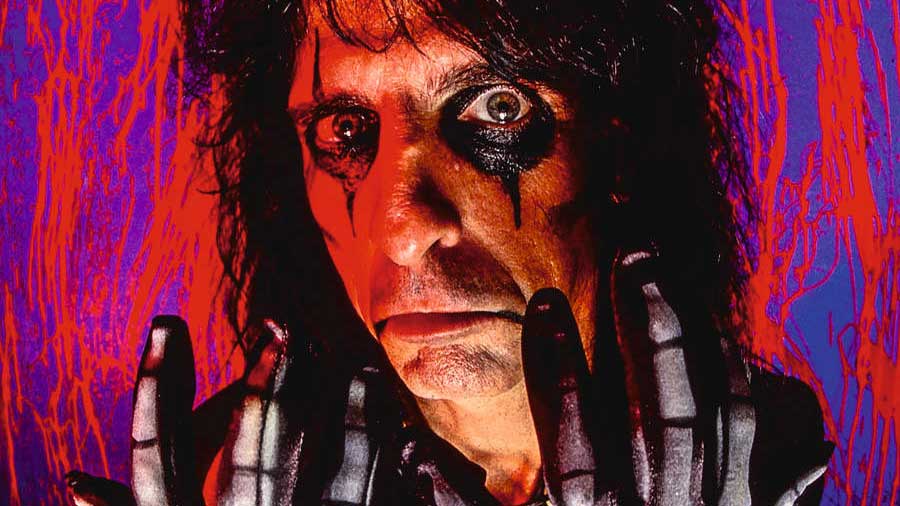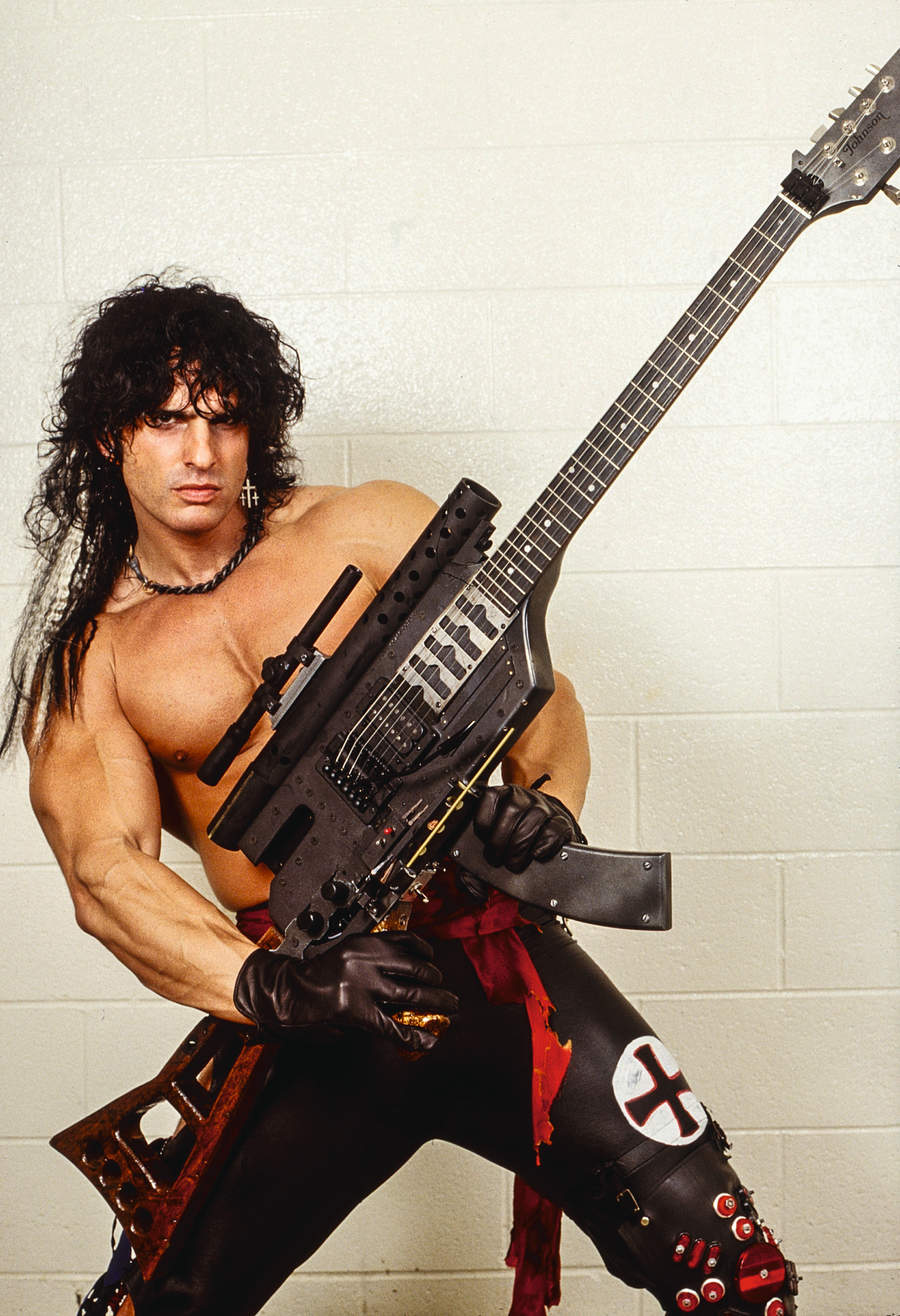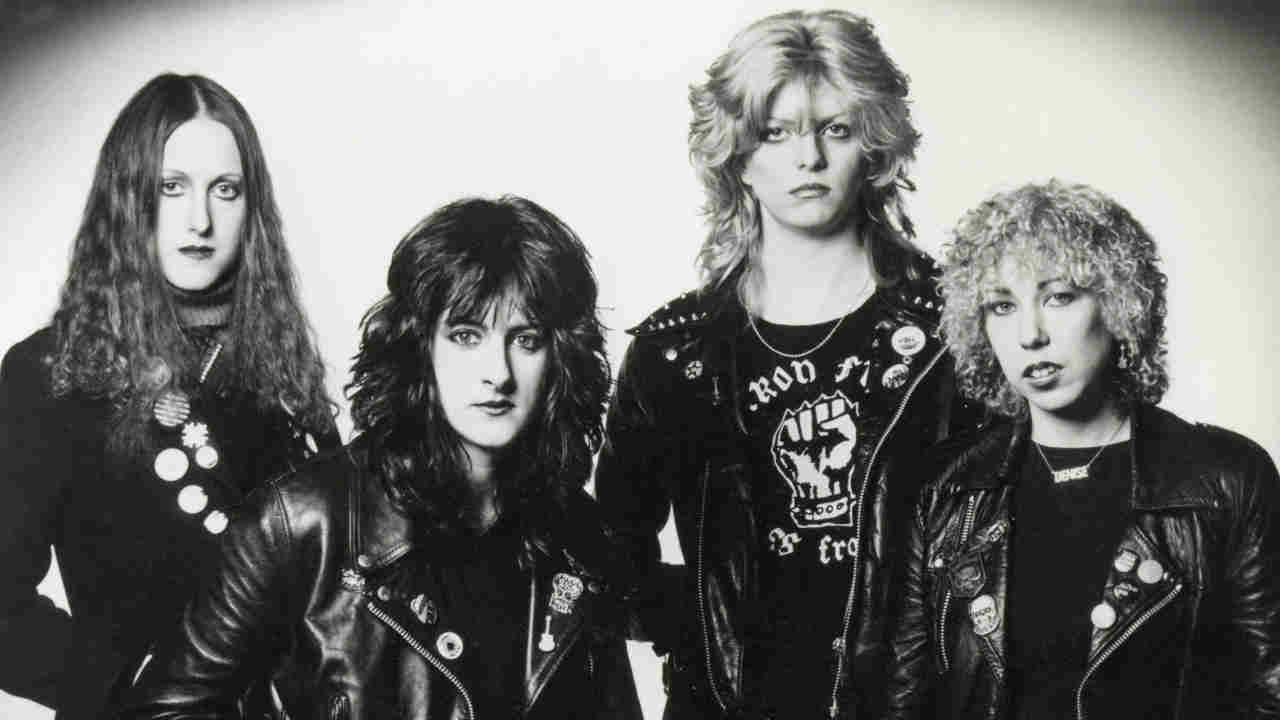"The new, sober Alice was much more dangerous than the old Alice:" How Alice Cooper cleaned up and became a pop star all over again
Seemingly washed up at the beginning of the 80s, Alice Cooper got his act together, and before the decade was over he was sober, straight and right back in the game – and the charts

It’s a couple of hours before show time, and Alice Cooper is waiting for Alice Cooper to show up. It’s been more than three years since he last played a gig. Three years in which he hit rock bottom, addiction-wise, and then dragged himself all the way back up.
But today it’s January 2, 1986, and the singer is clean and sober and ready to get back out there. There’s just one problem: as he paces his dressing room in Nashville’s Municipal Auditorium, there’s no sign of Alice Cooper – the sneering, spindly, subversive charactercum-alter ego he imagined up almost 20 years before, when he was plain old Vincent Furnier.
“It was the first ever show I’d done since I’d gotten sober,” he says now. “And I didn’t know if I was going to be able to work like that. I was in all my Alice drag and everything, just pacing up and down, wondering if Alice was going to be there. I must have walked ten miles in my dressing room.”
Several hours later, Alice Cooper – the man – is back in the dressing room. His live comeback went off better than he could have ever imagined. Alice Cooper – the character – did turn up for the show. And then some.
“When I got off stage that night I felt a hundred per cent better,” he says. “Alice was different. He was not going to be the whipping boy of society any more. He was going to be this new, reborn villain. He was going to stand up straight, he was going to look the audience in the eye, he was going to be in control. The new, sober Alice was much more dangerous than the old Alice.”
Whether that’s true or not is open to debate. The Alice Cooper of the 1980s wasn’t quite the malevolent, parent-baiting presence he had been at the start of the previous decade. But he had been given a second chance, and he wasn’t about to let it slip through his fingers again.

Alice Cooper entered the 80s in a state of epic disrepair. His success in the 70s brought with it an increasing reliance on booze and drugs, leading to a stay in a New York asylum (detailed on his 1978 confessional album From The Inside). But his attempts at drying out hadn’t taken, and he was back on the bad stuff with renewed vigour.
Sign up below to get the latest from Classic Rock, plus exclusive special offers, direct to your inbox!
Between 1980 and 1983, Alice made four of the most overlooked and under-appreciated albums of his career. Flush The Fashion (1980). Special Forces (1981), Zipper Catches Skin (1982) and DaDa (1983) repositioned the Coop as an unlikely new wave artist, throwing up such curiosities as minor robo-pop hit Clones (We’re All) and playfully homoerotic anthem Prettiest Cop On The Block. But Alice has little recollection of making them.
“I call them my ‘blackout albums’,” he says. “Those were the end of my alcohol and drug days, and I was so messed up. I don’t remember writing Zipper Catches Skin at all. I do not remember much of Special Forces or DaDa. I listen back to those songs and go: ‘These are really good… but I don’t remember writing them.’”
He had two options: get clean once and for all, or carry on drinking and die. Wisely he opted for the former.
“If I hadn’t stopped, I would have been gone,” he says. “It was one of those things where my body and everything else says: ‘This is it, make a choice.’”
Alice checked himself into hospital to get clean. The difference this time was that he didn’t just want to do it, he needed to do it.
“I went in with the attitude of, ‘I never want to touch another drink, I never want to take another drug,’” he says. “And when I came out I was totally healed from it. It was totally gone. I wasn’t hiding bottles around, I wasn’t sneaking drugs, I didn’t have a relapse. I give God all the credit on that one, because it was a miracle.”
He’d had got his personal life back on the rails, now it was time to resurrect his career. But things had changed in the two years or so he’d been lying low. New wave’s moment had passed, and a new generation of hard rock and heavy metal bands had taken its place: Mötley Crüe, Ratt, Twisted Sister. Alice wanted a piece of the action, and he knew just the man to help him get it: his producer and old friend Bob Ezrin.
It was Ezrin who tipped Alice off to the musician who would become his right-hand man over the next few years. Kane Roberts (born William Athas) was a hotshot young guitarist with a bodybuilder’s physique and a shock of black curly hair.
“Bob Ezrin said: ‘I’ve got this tape from this guy named Kane Roberts. Why don’t you go work with him for a couple of days, let’s just see what he’s like.’ I had no idea what he looked like. The first time I met him, he walked out and I went: ‘What?’ He looked like Sylvester Stallone as Rambo. Then I heard him play guitar and I went: ‘Oh my gosh, this guy is Steve Vai.’”

Roberts’s impact on Alice, musically and personally, was immediate. “Kane turned out to be the funniest person I’d ever worked with. He’s got Stallone’s body and Jerry Lewis’s brain. I have never laughed so much as I did working with him."
With Roberts on guitar and future Winger frontman Kip Winger on bass, Alice began work on the album that would become Constrictor. But before it was released there was the matter of getting back on stage. And so, at the beginning of January 1986, the singer found himself wearing a groove in the floor of a Nashville dressing room as he anxiously paced up and down, waiting for Alice Cooper to show up.
“It was very odd for me,” he says. “I honestly did not know what was going to happen when I stepped on that stage. I was wondering how much I’d been hiding behind the alcohol. But when I got on the stage I had this huge surge of energy. And I went: ‘This is so much better. So now I’m going make the audience see a new Alice.’ I didn’t hate the old Alice – he was really effective, that’s who I was. But I wanted this Alice to be very fast, very clever, very quick, everything. I always looked at Alice as being my favourite rock star. And this new Alice really was my favourite rock star.”

Constrictor was released in September 1986. Its booming metal production and Roberts’s guitar histrionics fitted in perfectly with prevailing musical trends, and the new, self-aggrandising Alice Cooper lived up to his creator’s billing on sneering opening track Teenage Frankenstein. But it also featured a callback to Alice’s recent, new wave-adjacent past in first single He’s Back (The Man Behind The Mask), a pulsing, synth-heavy track co-written with sometime Madonna associate Tom Kelly for the film Friday The 13th Part VI: Jason Lives (Alice’s weird ‘Ki ki ki ma ma ma’ vocal hook was a nod to a key sound effect in the long-running horror franchise).
“He [Kelly] gave it that pulse and we made it creepy,” says Alice. “It was a combination of what was being played on the radio, with Alice Cooper on top of it.”
Constrictor reached a respectable. No.59 in the US Billboard chart. While it was a long way from his 70s peak, it was a vast improvement on his previous two ‘blackout albums’ Zipper Catches Skin and DaDa, neither of which had made it into the charts at all.
Constrictor’s follow-up, Raise Your Fist And Yell, doubled down on its predecessor’s popcorn-metal approach. Opening track and lead-off single Freedom was a broadside at pro-censorship group the PMRC, delivered with the kind of smirking sneer that only Alice Cooper could pull off. ‘This ain’t Russia,’ he snarls. ‘You ain’t my dad or mother.’
“Kane was really good about writing big songs with big choruses: ‘Freedom to rock/freedom to talk’,” says Alice. “And the audience was singing along too with us: ‘Yeah, we want our freedom!’”
The old, drunk Alice Cooper may now have been an in increasingly distant memory, but not everyone was impressed with the new, improved Alice.
In 1988, British MP and future Labour Home Secretary David Blunkett called for Alice to be banned from the UK. “It’s an indication of the sick society we’re moving into and something drastic should be done to protect young people from paying for this sort of obscenity,” he told the Daily Mirror in a pearl-clutching story that claimed fans “fainted, threw up and were splattered with fake blood” during his gigs.
It was an echo of events 16 years earlier, when anti-porn campaigner Mary Whitehouse and Tory MP Leo Abse took a similar stance against Alice during his very first UK tour (the singer responded by sending flowers to Whitehouse and cigars to Abse).
“Oh, I loved it,” Alice says of the tabloid-generated outrage. “You could not buy press like that. It was always people who hadn’t seen the show. It was easy to shock people. Now you have the internet, I can’t think of any way to shock people. Audiences are shock-proof.”
Except back then Alice Cooper had one more shock up his sleeve. At the age of 41 he was about to become a pop star all over again.
While Constrictor and Raise Your Fist And Yell had reintroduced the world to Alice Cooper, it was his final album of the 80s, 1989’s blockbusting Trash, that put him back on hard rock’s A-list. As attuned as ever to the subtle changes in music, he’d seen the way the wind was blowing and decided to follow it.
“All of a sudden I hear and see Bon Jovi and Mötley Crüe and Def Leppard,” he says. “And I sat back and went: ‘Because of MTV, all these bands are being forced to do what I’ve been doing for years – they have to become theatrical, they have to have an image. I like this…’”
Alice began to scan the credits of some of the songs he was hearing on the radio: Bon Jovi’s Livin’ On A Prayer and You Give Love A Bad Name, Joan Jett’s I Hate Myself For Loving You, Angel by the similarly rejuvenated Aerosmith. He noticed one name they all had in common: songwriter Desmond Child.
“I went: ‘I gotta find this guy,’” says Alice. “And when I did find him, I said: ‘I love what you’re doing with these bands, I need to do that, only it needs be darker and sexier.’ And the first song we wrote was Poison.”
Their union was a hugely successful one. Trash was preceded by flagship single Poison, which made the US Top 10 and No.2 in the UK, his biggest hit since School’s Out in 1972. The Trash album itself – produced and co-written by Child and with appearances from members of Bon Jovi and Aerosmith – repositioned Alice as hair-metal’s weird old uncle. What songs such as House Of Fire, Bed Of Nails and Only My Heart Talking lacked in heaviness, they made up for in pop nous.
“There was a time around disco when they wouldn’t play rock on the radio,” he says. “So what did bands like Kiss and Aerosmith and Alice Cooper do? We made ballads, and those got played on the radio. We stayed in the game, until whatever was trendy went away and hard rock came back. You have to navigate the business. Trash wasn’t as heavy as the other albums, but Alice was still on the dark side of things. He was never going to be Mr Positive.”
Trash was the perfect end to a decade that had started off so badly for Alice. He’d gone from washed-up has-been to unlikely elder statesman, albeit one who still kept the establishment at arm’s length. And he hasn’t let things slip out his grasp again since. He’s about to release his twenty-ninth album, Road, and is pulling double duty as a member of all-star rock’n’roll supergroup the Hollywood Vampires.
“I tell young bands all the time that if you’re going to be in this business, you better know how to ride the roller-coaster,” says the man who has done more than a few spirals on it himself. “Because you’re going to have ups and downs. And when you’re on that down side, you better be thinking: ‘How do I make it better?’”
Road by Alice Cooper is out now.
Dave Everley has been writing about and occasionally humming along to music since the early 90s. During that time, he has been Deputy Editor on Kerrang! and Classic Rock, Associate Editor on Q magazine and staff writer/tea boy on Raw, not necessarily in that order. He has written for Metal Hammer, Louder, Prog, the Observer, Select, Mojo, the Evening Standard and the totally legendary Ultrakill. He is still waiting for Billy Gibbons to send him a bottle of hot sauce he was promised several years ago.

